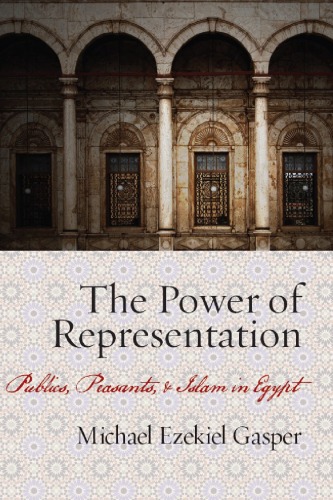

Most ebook files are in PDF format, so you can easily read them using various software such as Foxit Reader or directly on the Google Chrome browser.
Some ebook files are released by publishers in other formats such as .awz, .mobi, .epub, .fb2, etc. You may need to install specific software to read these formats on mobile/PC, such as Calibre.
Please read the tutorial at this link: https://ebookbell.com/faq
We offer FREE conversion to the popular formats you request; however, this may take some time. Therefore, right after payment, please email us, and we will try to provide the service as quickly as possible.
For some exceptional file formats or broken links (if any), please refrain from opening any disputes. Instead, email us first, and we will try to assist within a maximum of 6 hours.
EbookBell Team

4.0
66 reviews
ISBN 10: 0804758883
ISBN 13: 9780804758888
Author: Michael Ezekiel Gasper
The Power of Representation traces the emergence of modern Egyptian national identity from the mid-1870s through the 1910s. During this period, a new class of Egyptian urban intellectuals—teachers, lawyers, engineers, clerks, accountants, and journalists—came into prominence. Adapting modern ideas of individual moral autonomy and universal citizenship, this group reconfigured religiously informed notions of the self and created a national sense of "Egyptian-ness" drawn from ideas about Egypt's large peasant population.
The book breaks new ground by calling into question the notion, common in historiography of the modern Middle East and the Muslim world in general, that in the nineteenth century "secular" aptitudes and areas of competency were somehow separate from "religious" ones. Instead, by tying the burgeoning Islamic modernist movement to the process of identity formation and its attendant political questions Michael Gasper shows how religion became integral to modern Egyptian political, social, and cultural life.
CHAPTER ONE - The Formation and Emergence of the Peasant Question
CHAPTER TWO - People, Peasants, and Intellectuals
CHAPTER THREE - Five Peasant Characters in Search of Bourgeois Identity or ’Afandis in Gallabiyas
CHAPTER FOUR - Scientific Agriculture: Cultivators, Agriculturalists, or Peasants?
CHAPTER FIVE - The New Peasant, Colonial Identity, and the Modern State
the power of representation
the power of public relations
the politics of representation
representation and power
representation of power
Tags: Michael Ezekiel Gasper, Power, Representation, Peasants